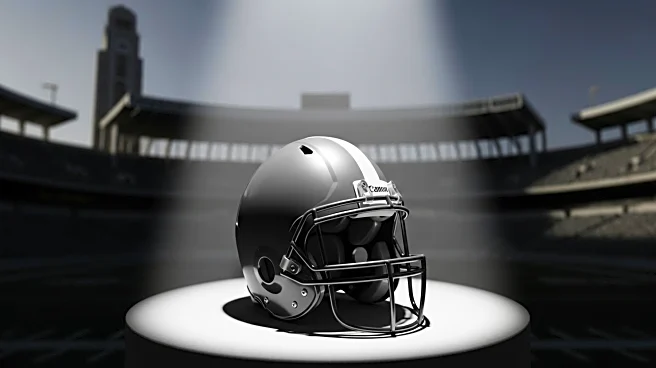What's Happening?
Texas Tech's football team, led by Coach Joey McGuire, has been criticized for allegedly attempting to buy a championship through significant NIL (Name, Image, and Likeness) spending. The team reportedly spent $28 million on NIL deals, ranking second only to Texas in such expenditures. Despite the criticism, McGuire emphasizes the strong camaraderie and dedication among his players, attributing their success to teamwork rather than financial incentives. The Red Raiders recently achieved a notable victory against Utah, boosting their ranking to No. 12 in the AP Top 25 college football poll. This success has reinforced hopes of winning the Big 12 Conference and potentially advancing to the College Football Playoff.
Why It's Important?
The controversy surrounding Texas Tech's NIL spending highlights the evolving landscape of college athletics, where financial incentives play a significant role in team dynamics and recruitment. The substantial investment in NIL deals reflects broader trends in college sports, where programs leverage financial resources to attract top talent. This development could influence future policies and discussions around NIL regulations and the balance between financial incentives and athletic performance. Texas Tech's success, despite criticism, underscores the potential impact of NIL spending on competitive standings and the strategic decisions programs make to enhance their prospects.
What's Next?
Texas Tech's continued performance will be closely watched as they aim for the Big 12 championship and a spot in the College Football Playoff. The team's approach to NIL spending may prompt further scrutiny and discussions within the college sports community regarding the ethical and competitive implications of such financial strategies. As the season progresses, stakeholders, including other college programs and regulatory bodies, may consider adjustments to NIL policies to address concerns about fairness and the influence of money in college athletics.
Beyond the Headlines
The debate over NIL spending raises questions about the long-term impact on college sports culture and the potential shift in priorities from athletic development to financial gain. This situation may lead to broader discussions about the role of money in shaping team identities and the values that underpin college athletics. Additionally, the focus on financial incentives could affect recruitment strategies and the expectations placed on student-athletes, potentially altering the traditional dynamics of college sports.









